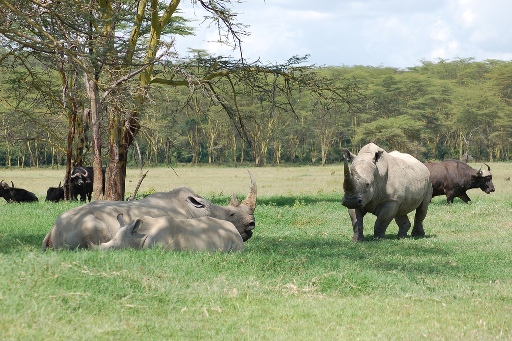Podcast: Play in new window
BOB HIRSHON (host):

Recording for rhinos. I’m Bob Hirshon and this is Science Update.
Rhinoceroses are endangered in the wild, but zoos and wildlife parks can help them survive through captive breeding programs. Rhinos don’t always reproduce successfully in captivity, though, and Texas State University bioacoustician Suzi Wiseman thinks this might be due in part to their extremely sensitive hearing.
SUZI WISEMAN (Texas State University):
They’re very very short-sighted, and so they depend on sound / in order to know what’s happening around them. Maybe we need to know what they’re hearing and whether certain soundscapes are appropriate for them or could perhaps be modified to make them more appropriate.
HIRSHON:
She and her colleagues are recording the natural and manmade sounds that captive rhinos hear every day, and they eventually hope to uncover which acoustic features are most conducive to their wellbeing. They presented their preliminary findings at 2014 meeting of Acoustical Society of America. I’m Bob Hirshon, for AAAS, the science society.
